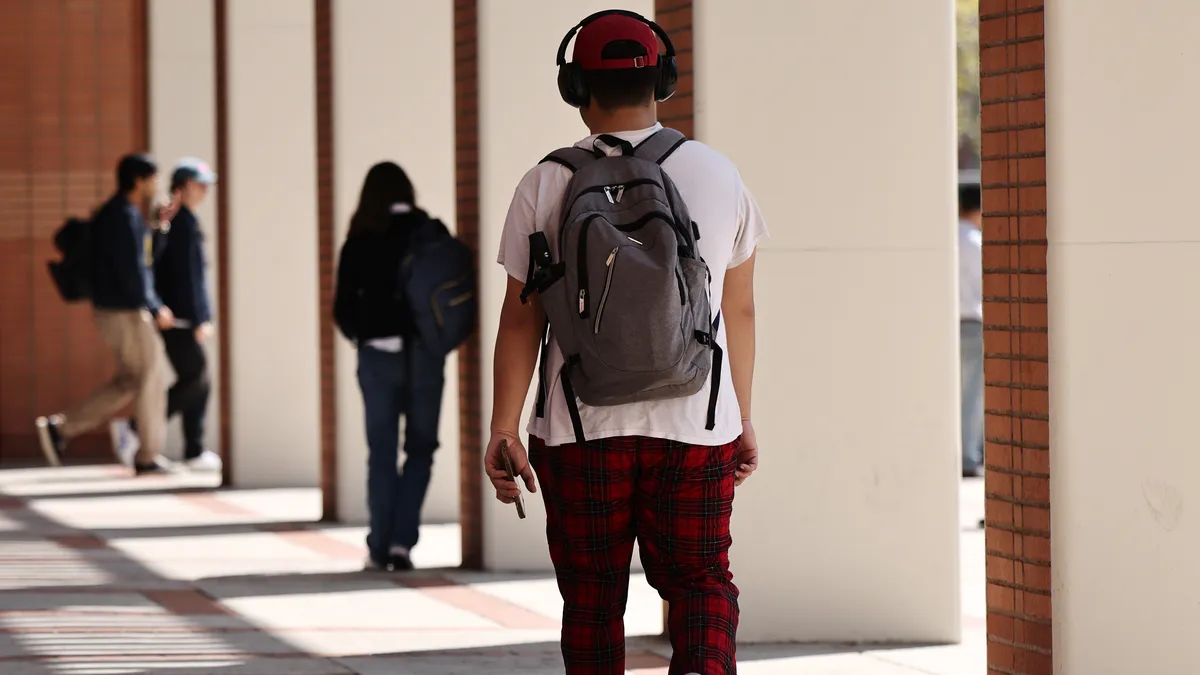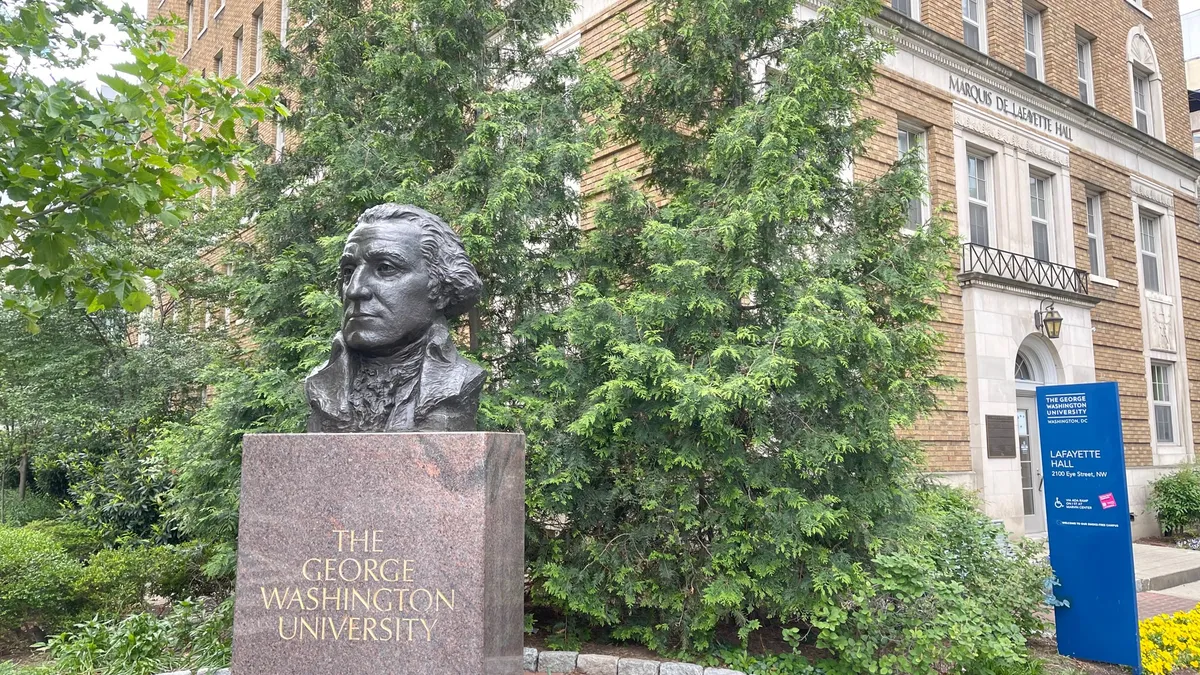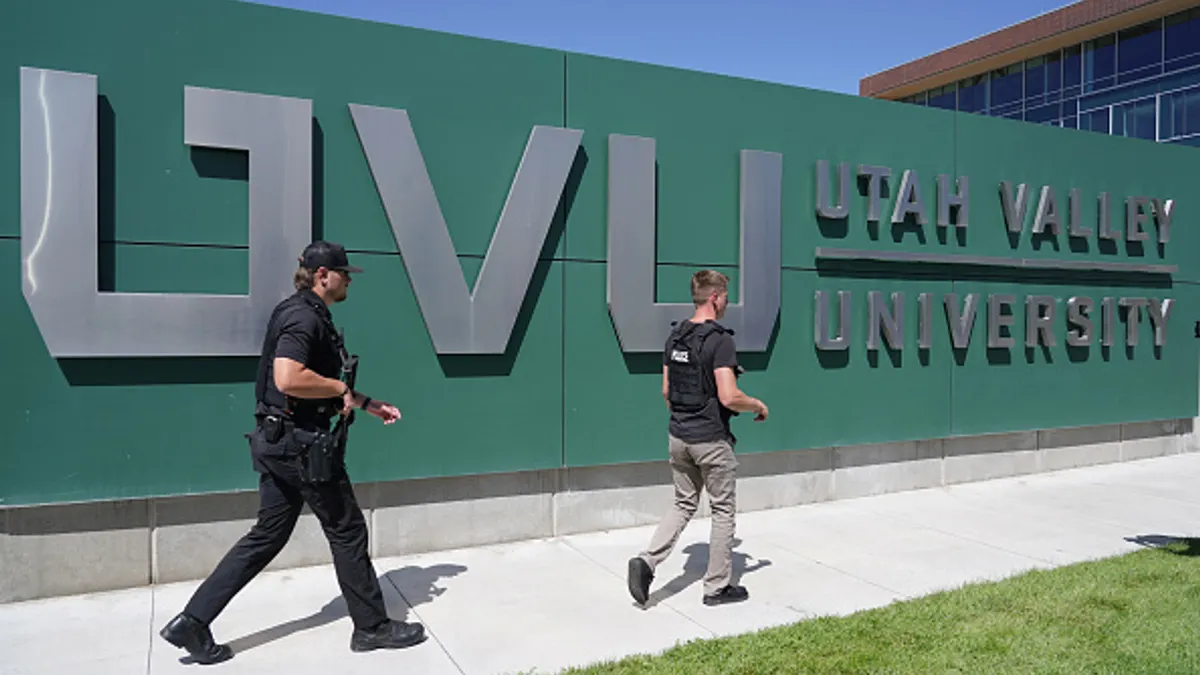Predictive analytics are the new trend in higher education, the yellow brick road to student success, but what happens when the students are unpredictable? In many cases, research has shown a more hands-on, personal approach has been key, and Atlanta Metropolitan State College is among a growing number of institutions relying on mentoring to make the difference for students.
Four years ago, the college made the transition from a two-year institution on the city's southwest side to a four-year liberal arts college with an access mission. Ninety-five percent of students at Atlanta Metro are from the city of Atlanta and 65% are first-generation, which Sonja Roberts, an Atlanta native and the school’s director of communications, is particularly proud to share.
"Atlanta is full of colleges, but I would say that not a majority of the people that come out of the school systems here can get into those colleges," said Roberts, who graduated from Atlanta Public Schools and knows well that many students with similar backgrounds can be shut out of the city's better known institutions.
Understanding the population
According to data, Georgia as a whole has the eighth lowest in-state enrollment in the country, with only 5.3% of its students comprising its higher education population. And APS students in particular score lower than their state-wide counterparts on important metrics — APS students averaged a 992 on the SAT in 2017, which is lower than the state average of 1050 and sits lower than the 1030-1230 requirement to get into Georgia State, for instance.
Ninety-four of the 103 schools in the district are Title I-designated, signifying high percentages of low-income students in the school. Most of the students come from households where the parents did not go to college or don't make a lot of money, making it sometimes "hard for students to see outside of that and break that cycle, and so the disparity continues," Roberts said.
And those challenges do not stop just because a student graduates from high school and matriculates to college.
"A majority of our students are Pell [grant] eligible and receive that aid, and we work with [a lot of] older students," said Roberts. "A lot of our students ride [Atlanta's public transit system,] MARTA. But that's very indicative of the financial status of these students — they don't have cars.
"They don't understand the level of commitment coming in the door that it's going to take to go through two or four years of college, and because of the population, it's probably going to take them more time. Life gets in the way, they have families. Their housing is unstable, their food is unstable. So sometimes they have to go out to work for a semester, or it's too tough," she said, adding that they almost always come back. "They deal with things that would make any other person want to quit — quit at life — but they don't."
A student-first model
As with many open-access institutions which admit high numbers of low-income students, these translate into additional challenges for the administration.
Most institutions today rely on tuition dollars to keep the wheels turning, but at Atlanta Metro, a major selling point is the $16,000 four-year degree. It's a figure that's low enough to force administrators to be creative about figuring out how to keep things rolling, especially in the wake of enrollment declines facing the entire industry, but "still $2,000 [per semester] that you don't have sitting around" if you're from a low-income household, she said.
So the college focuses on trying to direct spending to areas in which they can make the greatest impact on student persistence.
"We figure it out, we cut where we can, and we try to give the students high quality service and high quality programs. We'd rather cut what happens for staff versus what happens for students," Roberts said, acknowledging that stated priority can provide "a very hard balance" when it comes to recruiting and retaining top-tier faculty.
The school doesn't have the budget to hire professional advisers, and relies instead on faculty members to advise students, which Roberts contends is an advantage "because it means our faculty members are getting to know our students." Many students say the reason they persist is because "it's like a family, I feel mentored here," Roberts said. But it means more work for faculty, who are already overworked and could be better compensated elsewhere.
Roberts said the "saving grace" is the commitment of faculty and staff, who "know that they're changing, not just that student's life, but the lives of that family moving forward," and who remain motivated to stay for that reason, despite the fact that “it’s easy to say ‘I can go somewhere with a bigger budget.' "
Perhaps most importantly for students, the school targets fundraising efforts to build up gap funds to help students in need — last year, Atlanta Metro's foundation raised over $150,000 for the gap fund "so those students who are on the verge of graduating or finishing strong, but they need just a little bit of money, they can get it," she said.
"This is unfortunately the case nationally, but so many students can’t finish school or can't finish a semester because of something as little as $300," Roberts said.
There's a commitment to making sure students are successful and have jobs tied to in-demand industries upon graduation to help them break the cycles of poverty and realize social mobility. Leaders forge partnerships and identify programs across the state, like the Georgia Film Academy, to help bring access to new programs to the students on campus without costing the institution a lot more money.
Everybody does their part" to make it work, she said.

















